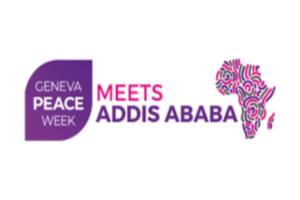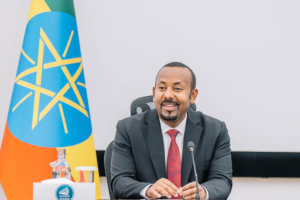
BY ADDISALEM MULAT
The Nile Basin Initiative NBI is essential for the countries situated along the Nile river course, and effective management is crucial for their survival and growth. The Nile provides water for domestic, agricultural, and industrial purposes and supports the livelihoods of millions of people. Moreover, the Nile Basin is a critical source of energy production, with hydropower being a significant contributor to electricity generation in several countries.
Addressing the challenges require joint efforts in developing income-generating projects, improved access to education and health facilities. Currently, the Nile Basin faces a growing population that could pose challenges on water and food security. Therefore, concerted efforts and innovative solutions will be needed to ensure sustainable food and water production to meet the growing demand by the populations in the region. Water management and governance are critical challenges in the Nile Basin region. Conflicts arising from shared water resources require strong governance structures for effective management and equitable allocation of the resources.
The cooperative efforts of the Nile riparian countries have been successful in establishing NBI. These achievements exemplify the collaborative spirit that will be instrumental in addressing the multifaceted challenges in the area.
Nile riparian countries have committed to managing the river and its shared water resources for the benefit of present and future generations. These concerted efforts by riparian countries demonstrate the potential for collaboration and mutual understanding in finding solutions to complex challenges in the region. As such, the cooperation must be sustained and strengthened to tackle the multifaceted challenges facing the Nile Basin.
A critical challenge in the Nile Basin is climate change, resulting in the warming of the river waters, rainfall variability and unpredictability, and increasing water stress in downstream countries. This problem requires collective efforts and innovative solutions to ensure that the river basin’s resources are conserved and sustainably utilized.
The construction and implementation of the Grand Ethiopian Renaissance Dam (GERD) project in this regard has the potential to promote regional integration among the Nile riparian countries. The countries can establish an agreement for the purchase of electricity as a way of promoting integration and reducing electricity poverty in the region. They could also collaborate on electricity connections, ensuring uninterrupted power supply and the fostering of sustainable development through mutual interest.
The GERD project’s implementation would also foster regional cohesion through the promotion of economic and social cooperation among Nile riparian countries.
As an energy source, the project could be a catalyst for industrialization and economic transformation in the region, resulting in interdependence and increased trade on the continent. Moreover, the GERD would have the potential to attract global investments, spurring innovation, and offering new opportunities for the region. Besides directly promoting integration, the GERD project could also indirectly promote regional cohesion by addressing issues related to drought, water management and poverty.
As a source of alternative energy, the project could lessen the dependence of some of the Nile riparian countries on traditional energy sources, such as wood, indubitably saving the ecosystem and reducing poverty levels in the region. The GERD project could also be a linchpin for global energy security and a means of promoting integrated development within the Nile region.
The construction and operation of the project could be a valuable tool for regional integration as it generates electricity without significant impact on downstream countries. It is a vital opportunity for Nile riparian countries to promote mutual growth and prosperity in the region. The production of electricity is crucial to ensure socioeconomic development in the region and the dam provides ample opportunity to achieve this goal.
Through the generation of electricity, downstream nations can gain access to a reliable and sustainable source of energy that will foster economic growth and development. This development will occur without causing significant harm or negative consequences to the downstream countries’ water supply. Through the cooperative effort of the upstream and downstream countries, they can all benefit from the electricity produced by the GERD and work together to realize the region’s full potential.
The project can also contribute to social integration by providing employment opportunities and boosting economic activities in the area. By working collaboratively, riparian countries can use the dam to foster social cohesion and shared economic prosperity. Moreover, the project can serve as the basis for cooperation among Nile riparian countries in other areas of common interest.
The project presents an opportunity for the countries to work together to develop and implement sustainable policies for preserving the ecosystem while meeting the energy needs of their population. In essence, the dam represents an opportunity for the Nile riparian countries to establish a model for regional integration and cooperation. It also generates significant electricity without posing a notable threat to downstream countries water supply, presents opportunities for mutual benefits, fosters social cohesion, and promotes environmentally conscious policies and actions.
Riparian countries must prioritize investments in infrastructure that will enable efficient utilization of water resources in their respective countries while ensuring the water flow is fair and unimpeded downstream. These successes show the potential for concerted efforts in addressing the multifaceted challenges in the area.
The construction of the GERD project is a testament to African continent’s capability to grow independently by harnessing its natural resources. The project also presents an opportunity for African countries to work collaboratively towards realizing the continent’s full potential.
By improving power generation and distribution, African countries can promote economic growth and increase access to reliable energy. Additionally, the GERD project can foster social cohesion and promote unity as Nile riparian countries work together to achieve common goals. Furthermore, the project highlights how African countries can harness their natural resources to reduce poverty and boost economic growth in the region.
As energy is a vital factor in socio-economic development, governments can channel the energy generated from the GERD project for various productive activities, leading to job creation, value-added production, and increased economic opportunities for their citizens.
Additionally, the project serves as a practical example of how African countries can develop infrastructure and create innovative solutions using their natural resources. This encourages African countries to invest in their natural resources and develop policies aimed at promoting sustainable development. It also demonstrates how African countries can achieve economic growth and industrialization by utilizing their natural resources.
By leveraging their resources, African countries can promote inclusive growth by providing their citizens with job opportunities and creating value-added production activities. Given the vast natural resources available to African countries, promoting sustainable resource utilization and conservation is critical. The GERD project provides a great example of how African countries can use their natural resources sustainably while avoiding negative environmental impacts.
The entry into force of the Nile Basin Cooperative Framework Agreement–CFA would ensure the equitable and reasonable use of resources, Deputy Prime Minister and Foreign Minister Demeke Mekonnen said, according to information obtained from Ethiopian News Agency.
Opening the 2nd Afri-run high-level conference held in Addis Ababa, Demeke said it has been stated repeatedly that the Nile River Basin continues to suffer from natural and man-made challenges.
Climate change, population growth and unsustainable use of resources are mentioned among the natural challenges.
The man-made challenges including lack of political will, and tendencies of hegemonic use over the shared resource continue to hinder cooperation, it was indicated.
“These challenges if not addressed properly, will continue to stand against our aspirations of ensuring sustainable development,” he pointed out.
The determination for cooperation resulted in the establishment of the Nile Basin Initiative (NBI) and its outcome Cooperative Framework Agreement–CFA.
“It is high time that we redouble our efforts to deal with the challenges building on the great strides we have made in the past to ensure equitable use.”
Calling for the finalization of the ratification of the CFA and realize the wish of the people, he said “The entry into force of the CFA would ensure the equitable and reasonable use of our resources and enhance our cooperation through joint projects.”
The overall purpose of the conference remains to ensure equitable and reasonable utilization of the trans boundary water resources through promotion and exchange of experiences and scientific researches, it was learnt.
The Ethiopian Herald 25 June 2023
The Ethiopian Herald 25 June 2023



